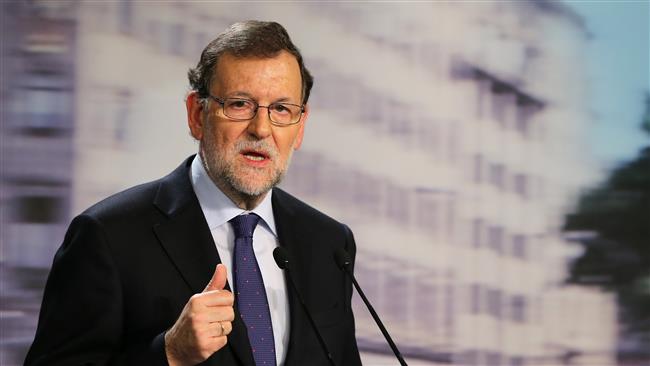-
Tips for becoming a good boxer - November 6, 2020
-
7 expert tips for making your hens night a memorable one - November 6, 2020
-
5 reasons to host your Christmas party on a cruise boat - November 6, 2020
-
What to do when you’re charged with a crime - November 6, 2020
-
Should you get one or multiple dogs? Here’s all you need to know - November 3, 2020
-
A Guide: How to Build Your Very Own Magic Mirror - February 14, 2019
-
Our Top Inspirational Baseball Stars - November 24, 2018
-
Five Tech Tools That Will Help You Turn Your Blog into a Business - November 24, 2018
-
How to Indulge on Vacation without Expanding Your Waist - November 9, 2018
-
5 Strategies for Businesses to Appeal to Today’s Increasingly Mobile-Crazed Customers - November 9, 2018
Spain’s PM Rajoy to meet Socialist leader over potential pact
Mariano Rajoy, the current prime minister and PP leader – having won most votes and seats – will be first to try to form a governing coalition or alliance.
Advertisement
The Socialists (PSOE) followed suit, with number two Cesar Luena saying his party would block any government led by Rajoy, whose drastic spending cuts, tax rises and health reforms over the past four years have proved deeply unpopular. And with the upstart Ciudadanos also ruling out backing Rajoy, the austere 60-year-old premier appears increasingly beleaguered and alienated. The third biggest party, Podemos, has already laid down some “red lines” which leader Pablo Iglesias will base his talks on.
Rajoy’s Popular Party took 28.72 percent of the vote on Sunday, with the Socialists claiming 22.01 percent, the Podemos 20.66 percent and the Ciudadanos 13.93 percent.
But Sunday’s vote produced a fragmented parliament, with both traditional parties – the right wing Popular Party (PP) and the socialist PSOE – well short of a majority.
The inconclusive vote heralded a new era of pact-making, shattering a two-party system between PP and PSOE that has dominated Spain since the 1970s, with the surge from Podemos – the latest of several strong showings by populist parties in European elections – giving it a potential role as kingmaker. The only combination that would have a clear majority would be to join forces with the Socialists in a grand coalition.
The leader of Podemos said on Monday he would not allow the PP to form a new government.
Ciudadanos leader Albert Rivera, with 40 seats, came out in support of a PP minority government, which would negotiate with Ciudadanos, the Socialists and Podemos to support it in votes on different laws.
Rajoy offered on Monday to “launch a process of dialogue” with other parties to try to form a government, “to offer certainty within and outside Spain”.
Within a day of the electoral announcement, the country’s bonds and stock plunged; the IBEX 35 index fell by three percent initially in early morning trading, before settling at a 1.8 percent decline.
Rajoy, who has the first chance to form a new government, has limited options. Or relatively unstable short term governments like Italy.
The problem now is that neither of the two ideal coalitions that could be formed (PP-Ciudadanos or PSOE-Podemos) would have a majority of 176 seats and so now the country faces a period of instability as the main parties embark on negotiations to see if a coalition can be made. If the candidate is not immediately successful, Parliament has two months to elect a prime minister or call a new election.
Advertisement
In common with all democratic nations, no mainstream political party has been able to produce a panacea for the economic difficulties; this has produced voter disenchantment and allowed new parties to emerge. They blame the Socialists for plunging Spain into an extended economic crisis that began in 2008, and the Popular Party for an economic recovery accompanied by an unemployment rate of 21 per cent and more than double that for workers under age 25.





























